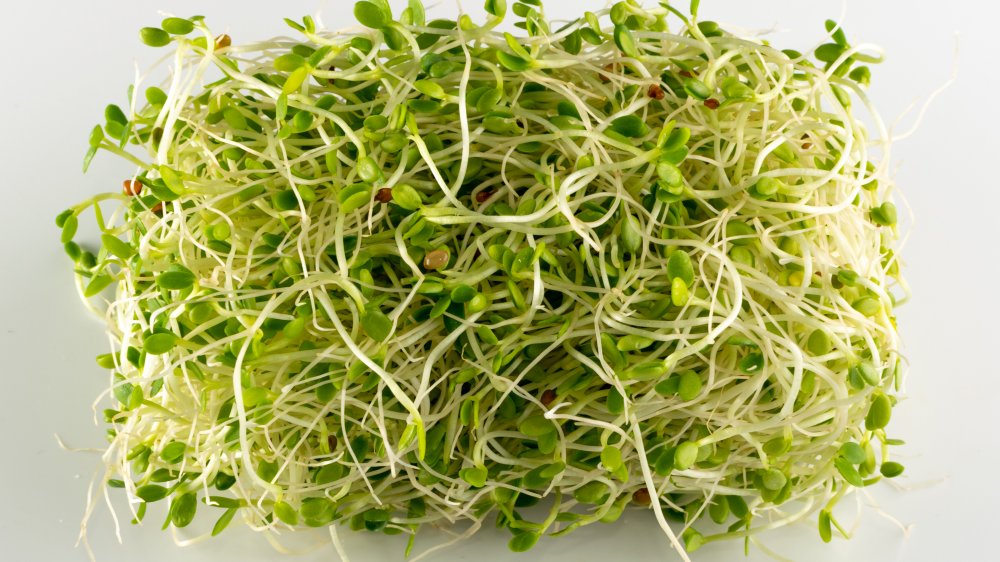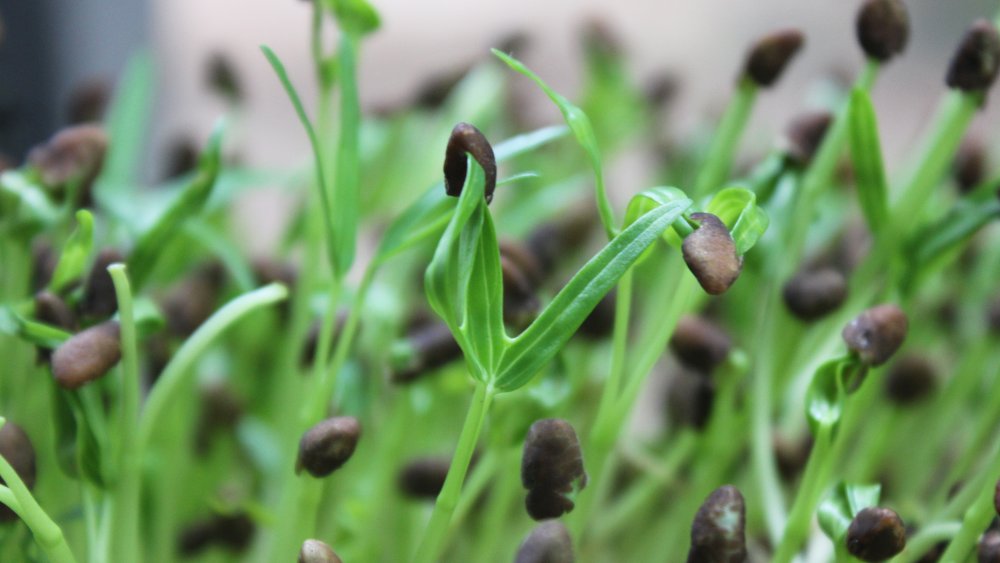You Should Never Order Sprouts At A Restaurant. Here's Why
Although sprouts, the typically green and crunchy beginnings of various vegetables, may seem like they're a healthy option at a restaurant, they're actually a bit dodgy. Although they contain nutrients such as antioxidants, amino acids, and a number of vitamins and minerals, they may contain some unwanted aspects as well (via Colorado State University). Because sprouts come from warm greenhouse environments, it's not uncommon for them to harbor dangerous bacteria such as salmonella, E. coli, and listeria, which thrive in such an environment (via Health).
Estimates place the number of sprout-related illnesses in the United States at more than 100,000 over the last two decades, the majority of which were traced back to salmonella and E. coli.
While it's quite normal to wonder whether this sprout issue is a real problem or whether it's a bit blown out of proportion, consider this. University of Georgia's Center for Food Safety Director Mike Doyle said (via Amazing Ribs), "I consider sprouts to be among the most risky foods sold at retail."
Retail and restaurant issues with sprouts
Restaurants and retailers have had a difficult time deciding whether they want to sell these potentially-dangerous germinated seeds. In 2011, an E. coli outbreak traced back to a Jimmy John's sickened more than two dozen customers. As a result, the sandwich chain decided to take clover sprouts off the menu. The irony is that they had been using clover sprouts instead of alfalfa sprouts because they were considered to be a "safer" option. At the same time, Kroger decided to take sprouts off the shelves at its more than 2,400 grocery store locations. At Jimmy John's, sprouts were taken off the menu in February 2020 and have yet to reappear (via Healthline).
One type of sprout is just as likely as the others to contain dangerous bacteria, but you might not recognize it as such because it doesn't contain "sprout" in the name. This would be wheatgrass, which you'd be more likely to find at a juicery than at a restaurant.

